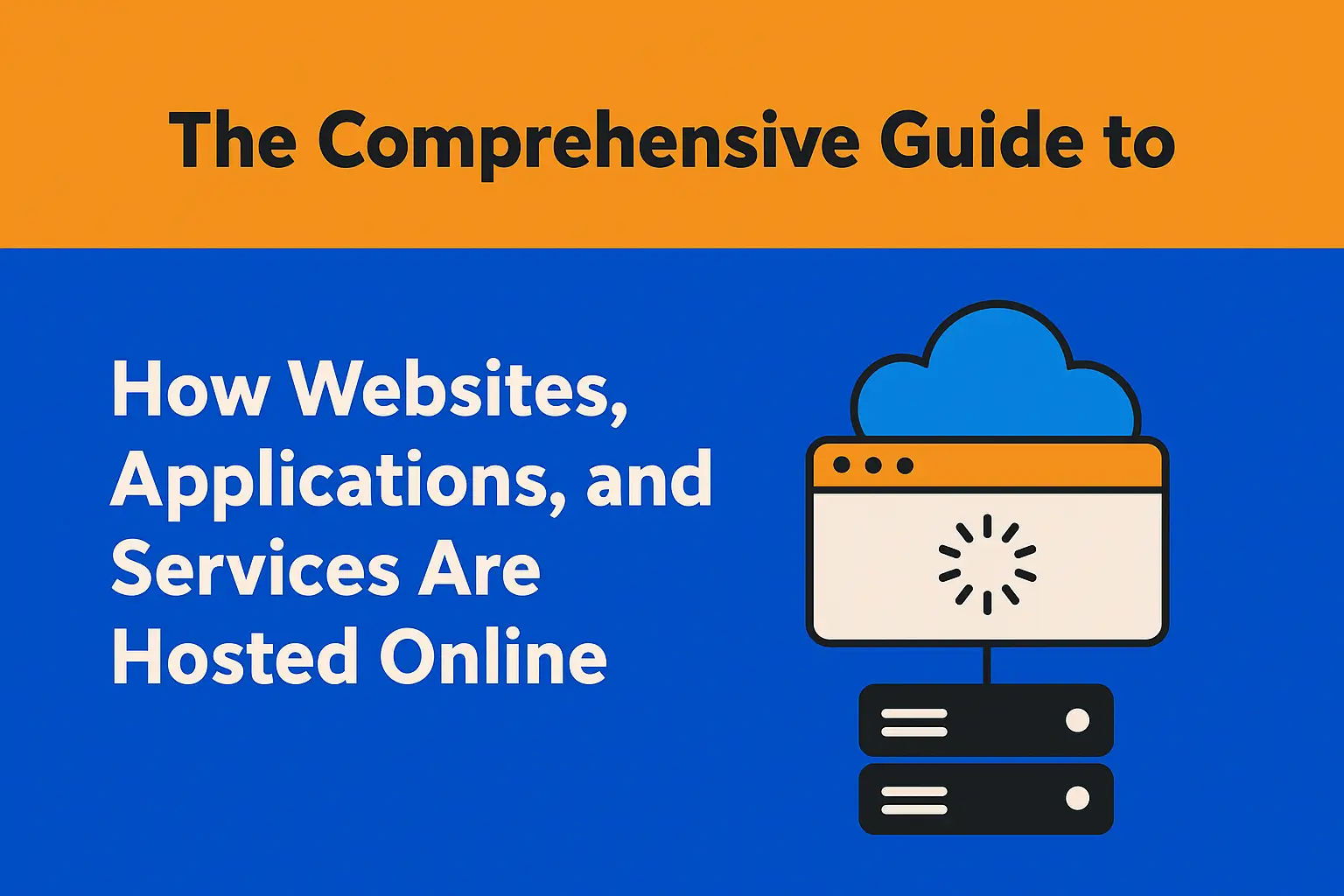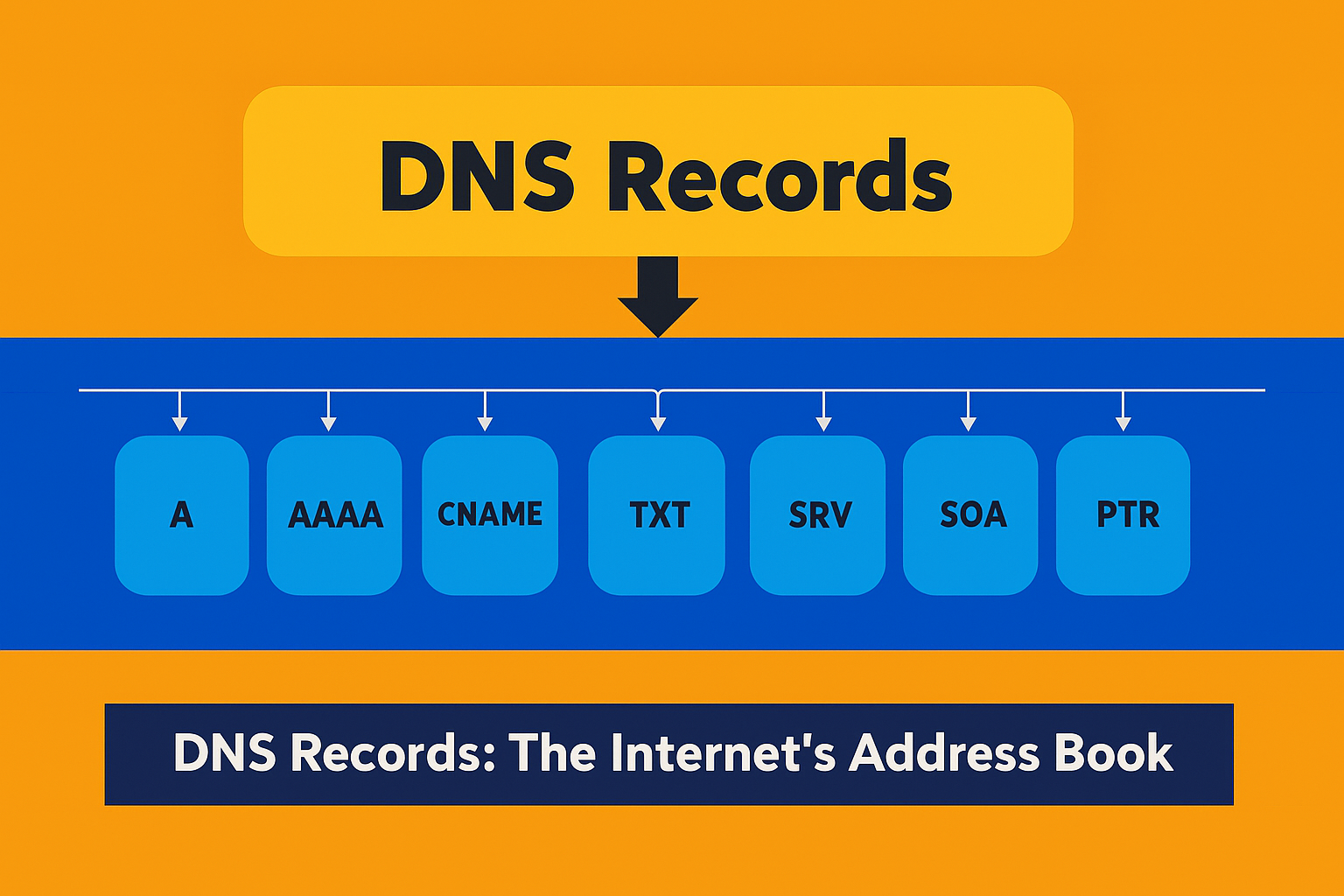
Introduction to Web Hosting
Web hosting is a fundamental service that allows individuals and organizations to make their websites accessible via the World Wide Web. Whether you’re running a personal blog, an e-commerce site, or a corporate portal, web hosting is crucial for ensuring your website is available to visitors around the globe. At its core, web hosting involves storing website files on servers that are connected to the internet, making it possible for users to access your site anytime, from anywhere.
There are several types of web hosting services available, each designed to meet specific needs and requirements. Two popular types are shared hosting and managed hosting. Shared hosting is a cost-effective solution where multiple websites share the same server resources, such as CPU, RAM, and storage. This approach is ideal for smaller websites with limited traffic and lower resource demands. On the other hand, managed hosting provides a higher level of service where the hosting provider manages and optimizes the server environment, which is dedicated exclusively to a single website or client. This type of hosting is suitable for larger, high-traffic websites requiring robust performance and security.
Understanding the differences between shared hosting and managed hosting is critical for making informed decisions about your web hosting needs. Choosing the right type of hosting can significantly impact your website’s performance, scalability, and overall user experience. As you explore the options, you’ll need to consider factors such as budget, technical expertise, traffic expectations, and the level of control and support you require. In the following sections, we’ll delve deeper into the specifics of shared hosting and managed hosting, comparing their features, advantages, and potential drawbacks to help you determine which option is the best fit for your website.
What is Shared Hosting?
Shared hosting is a type of web hosting where multiple websites are hosted on a single server. This configuration allows the server’s resources, such as CPU, RAM, and disk space, to be shared among all the hosted websites. Due to this resource-sharing nature, shared hosting is often the most cost-effective option available, making it an attractive choice for small businesses, personal blogs, and startups with limited budgets.
The way shared hosting operates is fairly straightforward. Each website on the server is given a separate directory for its files, yet all sites share the common resources provided by the server’s hardware. This means that if one website receives a spike in traffic or requires more resources, the performance of other websites on the same server might be affected. This interdependence is one of the primary characteristics of shared hosting, which can lead to certain limitations.
Among the key benefits of shared hosting are its affordability and ease of use. Hosting providers typically offer a range of plans that include essential features such as domain registration, email accounts, and website builders, all bundled into a single package. This makes shared hosting a very convenient solution for individuals and small enterprises who are new to managing websites and want to keep their costs low.
However, shared hosting does come with potential drawbacks. The most significant concern is the limited resources allocated to each website. As all sites on the server draw from the same pool, a high-traffic website or one that is resource-intensive can slow down the performance of others. Additionally, there might be restrictions on the types of software and customizations you can implement, as changes at the server level could impact all users.
Shared hosting’s simplicity and cost savings are invaluable for many users, but understanding its limitations is crucial for making an informed decision. While it offers an economical entry point for many, those expecting higher traffic volumes or requiring more customized solutions may need to explore other hosting options.
What is Managed Hosting?
Managed hosting is a comprehensive web hosting service where the hosting provider takes on the responsibility of managing the server and its performance, ensuring that all aspects of hosting are optimized and maintained. This contrasts sharply with shared hosting, where multiple users share the same server and its resources, usually without personalized management or support.
One of the distinct features of managed hosting is the added layer of services it offers. These typically include automated backups, which ensure your data is consistently saved and can be recovered swiftly in the event of a failure. Security monitoring is another critical service, where the hosting provider actively checks for vulnerabilities, protects against attacks, and maintains the overall security of your website. Technical support is also significantly more robust, often available 24/7, and staffed by specialists who can assist with a wide array of issues, from server configurations to troubleshooting software problems.
Managed hosting is particularly well-suited for websites with higher traffic volumes or more complex requirements. For businesses that rely heavily on their online presence, managed hosting can provide peace of mind, knowing that technical aspects are in professional hands, which allows them to focus more on their core activities. Enhanced server performance and uptime reliability are crucial for e-commerce sites, large blogs, or corporate websites, making managed hosting an attractive option.
Of course, these comprehensive services and elevated support come at a higher cost compared to shared hosting. Managed hosting is an investment that offers value through enhanced performance, security, and support, which can be critical for businesses aiming for growth and stability in their online ventures.
Performance Comparison
When evaluating web hosting options, performance is a critical factor that can significantly influence your website’s effectiveness. Shared hosting and managed hosting differ considerably in this realm, with each offering distinct advantages and potential drawbacks.
In terms of page load times, shared hosting tends to be more susceptible to performance degradation. This is largely due to the fact that multiple websites share the same server resources, including CPU, RAM, and bandwidth. When one site experiences a traffic surge, it can consume a significant portion of the available resources, leading to slower load times for everyone sharing the server. Such resource bottlenecks are a common issue with shared hosting, making it less predictable in terms of performance.
Uptime reliability is another important aspect to consider. Shared hosting environments are generally less stable because the actions of one user can impact the server’s overall uptime. For instance, if a website on the same server gets hacked or encounters a major issue, it can lead to server downtime, affecting all other sites hosted on that server. The shared nature of the environment inherently makes it more vulnerable to these interruptions.
Conversely, managed hosting offers more consistent performance thanks to dedicated resources and optimization. In managed hosting setups, each client often has access to a specific allocation of CPU, RAM, and bandwidth, ensuring that your website’s performance remains unaffected by the activities of others. This dedicated approach not only enhances page load times but also contributes to better uptime reliability. Service providers often include performance optimization as part of their package, employing experts to handle server configurations, caching, and other technical optimizations to maintain peak performance.
Overall server performance in managed hosting is typically superior because the environment is specifically tailored to handle the demands of individual websites. Frequent performance monitoring and updates are part of managed services, ensuring that your site runs efficiently at all times. This meticulous attention to detail and resource allocation makes managed hosting a strong contender for those prioritizing optimal performance.
Security Features
When comparing shared hosting and managed hosting, one of the most critical considerations is the security measures each type offers. In a shared hosting environment, multiple websites coexist on a single server, which inherently increases the security risks. The sharing of server resources makes it more susceptible to various threats, as a security breach in one website can potentially affect all the other websites on that same server. Basic security features, such as SSL certificates, might be included, but their implementation and management are often left to the user’s discretion.
Managed hosting, on the other hand, usually comes with robust, built-in security protocols designed to safeguard websites more effectively. Enhanced security measures such as dedicated SSL certificates, advanced firewalls, and thorough malware scanning are standard in managed hosting services. These services also typically include proactive security monitoring and regular updates to keep the server and its applications secure from newly discovered vulnerabilities.
An essential part of managed hosting security is the implementation of automatic updates. This ensures that the server’s operating system, control panel, and other essential software are consistently up to date with the latest security patches and improvements. This continuous attention to security helps to protect websites against threats and reduce the risk of downtime caused by cyberattacks.
In comparison, updates in a shared hosting setup are often less frequent and might require manual intervention by the user. This lag can leave websites exposed to security risks for longer periods, especially if the website owner is not diligent about promptly applying updates.
Advanced security monitoring tools provided by managed hosting services play a crucial role in maintaining the integrity of a website. These tools can include real-time detection of suspicious activities, intrusion prevention systems, and comprehensive security audits. Their importance cannot be overstated as they help identify and mitigate potential threats before they can inflict significant damage.
In summary, while shared hosting may offer basic security features, managed hosting provides a far more secure environment through enhanced security protocols, regular updates, and sophisticated monitoring tools, making it a preferred choice for businesses and websites that prioritize security.
Ease of Use and Management
When considering web hosting solutions, ease of use and management play crucial roles in determining the best fit for your needs. Shared hosting is often favored by individuals and small businesses seeking a cost-effective solution. However, it typically requires a greater degree of hands-on management. Users are responsible for installing and updating software, configuring security settings, and ensuring overall website maintenance. For those with technical acumen, shared hosting can be manageable, but newcomers may find the learning curve steep and demanding.
Managed hosting, on the other hand, offers a more streamlined and user-friendly experience. This type of hosting service comes with a suite of managed services that minimize the administrative burdens on the site owner. Common services include automatic updates, regular backups, enhanced security measures, and performance optimization. This makes managed hosting an attractive choice for those who prefer to focus on content creation and business operations rather than technical details.
In terms of the learning curve, managed hosting proves to be more accessible, particularly for those without extensive technical knowledge. Service providers often offer customer support and dedicated account managers to assist with any issues that may arise. This level of support can drastically reduce downtime and improve the overall reliability of your website.
The choice between shared and managed hosting can significantly impact your day-to-day responsibilities. With shared hosting, expect to allocate time for routine maintenance and troubleshooting. Conversely, managed hosting allows you to delegate these tasks to professionals, ensuring your site remains up-to-date and secure with minimal personal intervention.
Ultimately, the decision hinges on your technical expertise and how much time you can devote to website management. Shared hosting might be suitable for those on a tighter budget with some technical skills, while managed hosting serves as a comprehensive solution for users seeking ease and reliability without the hassle of hands-on management.
Cost Considerations
When evaluating shared hosting versus managed hosting, cost is often a pivotal factor. Shared hosting is typically the more budget-friendly option. It operates on a model where multiple users share the same server resources, allowing hosting providers to distribute the costs among many clients. This leads to lower initial costs that can appeal to startups or individuals with limited budgets. However, these lower upfront expenses can sometimes mask underlying additional costs, such as fees for necessary add-ons like enhanced security features or extra storage space. These can add up, potentially making shared hosting more expensive in the long run than initially expected.
On the other hand, managed hosting offers more premium services at a higher cost. From advanced support to tailored configurations and dedicated resources, managed hosting costs reflect the level of service provided. The initial fees are usually higher, as clients are paying for a turn-key solution that addresses various aspects of server management. Ongoing expenses for managed hosting can be more predictable and transparent since many costs are bundled into the service package. This can include regular software updates, performance optimization, and even extended support, which reduces the likelihood of unexpected expenses.
When weighing the cost against the benefits, it’s essential to consider the long-term financial impact. Shared hosting might seem economical in the short term, but scalability issues or the need for professional IT support can escalate costs. Conversely, while managed hosting demands a more significant initial investment, the comprehensive services can save money through reduced downtime, improved security, and enhanced website performance over time.
In conclusion, assessing your specific needs and predicting future requirements are crucial steps. Calculate both immediate and projected expenses alongside the benefits each hosting type provides to make an informed decision. Whether opting for the affordability of shared hosting or the robust support of managed hosting, balance cost considerations with the value and peace of mind each can offer.
Which Hosting Option is Right for You?
Choosing between shared hosting and managed hosting primarily depends on your specific requirements and future aspirations for your website. If you’re working with tight budget constraints, shared hosting may be the more appealing option. It is typically more affordable, making it suitable for smaller websites, personal blogs, or small businesses that are just getting started. The cost-effectiveness of shared hosting stems from the fact that multiple websites share the same server resources.
However, budget is just one aspect of the decision-making process. Consider your website traffic as well. Shared hosting might suffice for low to moderate traffic levels but could struggle to keep pace with high traffic volumes, leading to slow load times and potential downtime. If you anticipate or are already experiencing significant traffic growth, investing in managed hosting could provide the needed performance and reliability. Managed hosting services generally offer scalable resources that grow with your website.
Technical expertise is another critical consideration. Shared hosting customers usually need a basic understanding of web technologies, as they are responsible for some degree of server management and maintenance. Conversely, managed hosting includes comprehensive support services that handle all technical aspects, freeing you to focus on other priorities. If you lack technical skills or prefer not to worry about server management, managed hosting is likely a better fit.
Lastly, align your hosting choice with your business goals. If you aim for rapid growth and need a highly secure, performant, and reliable online presence, managed hosting provides the infrastructure and support necessary to meet these goals. For smaller ventures where cost-saving is crucial and sophisticated technical features are not required, shared hosting remains a viable option.
Ultimately, shared hosting offers a cost-effective solution for those with limited budgets and minimal technical needs, whereas managed hosting is geared towards businesses that demand higher reliability, scalability, and hands-on support. Evaluate these factors carefully to select the hosting option that best aligns with your aims and resources.





0 Comments